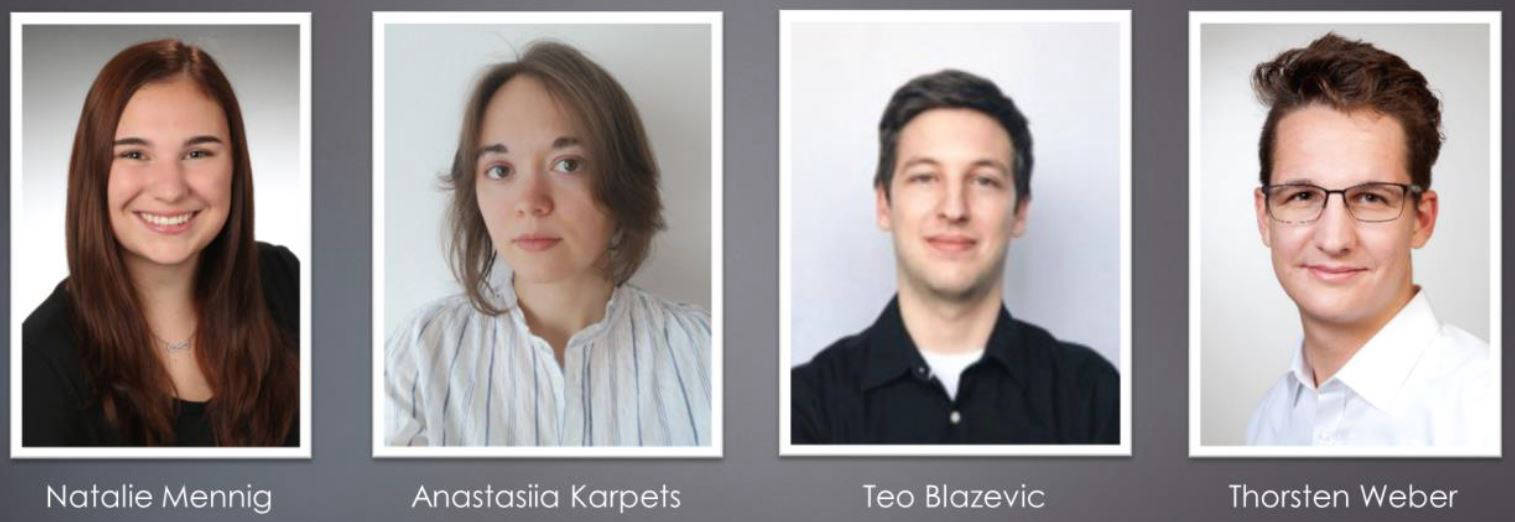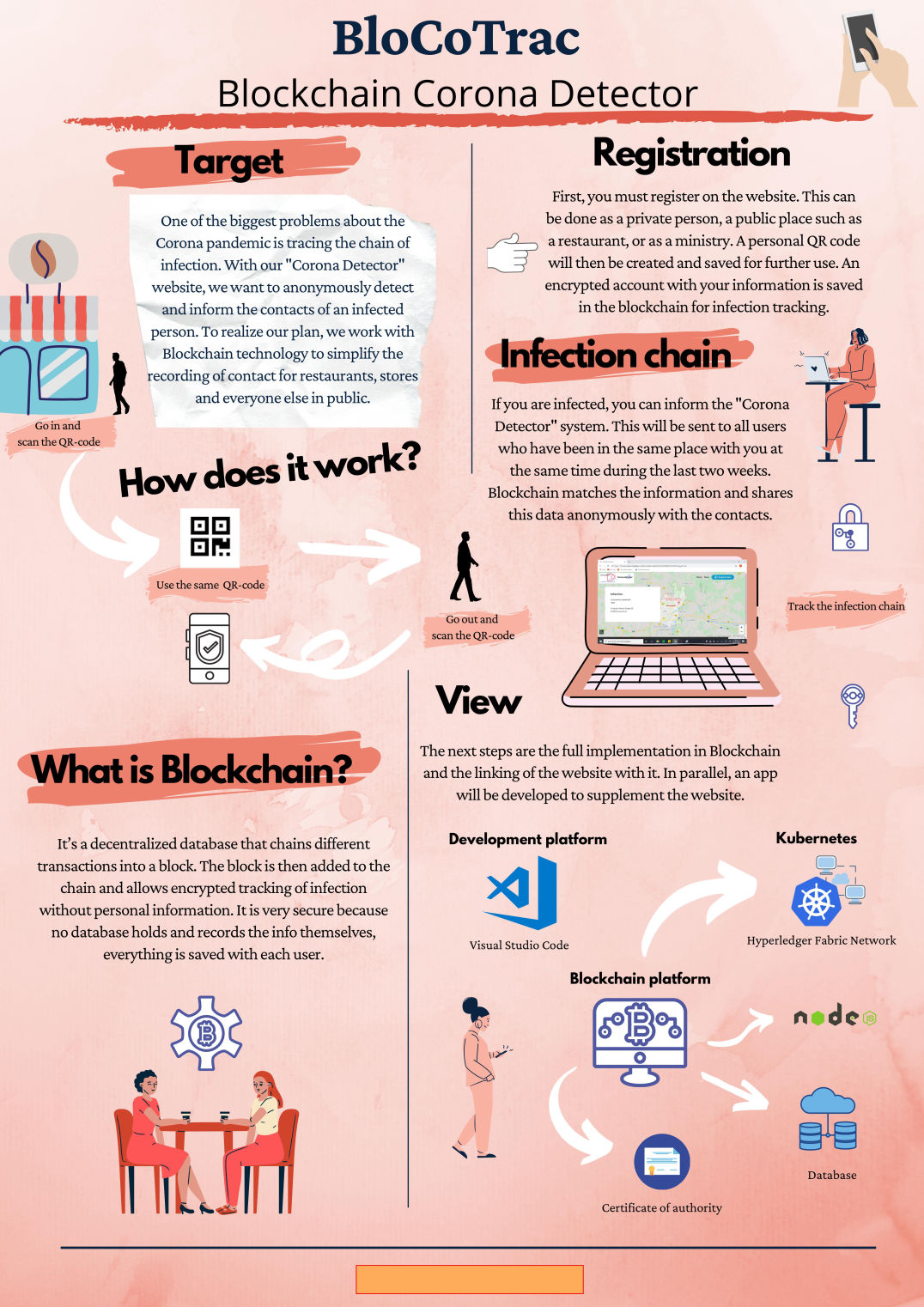
As part of a project seminar an international team of students of the University of Applied Sciences Würzburg-Schweinfurt has developed an easy-to-use solution for registering and tracking contacts. Therefore a prototype was to be developed and implemented based on blockchain technology.


Since 2020, restaurants have had to keep guest lists - with a high level of effort and the risk of illegible or incorrect information from guests. Wouldn't it be much easier to simply scan a QR code with a cell phone when entering the restaurant, and the visit is automatically registered? The restaurateur can fulfill his obligation to maintain the guest list digitally, and the health department would be in a better position to track the occurrence of infections based on the registrations with the help of software - on the basis of anonymous codes that initially do not allow any conclusions to be drawn about the person.
In simple terms, blockchain is a shared database (often distributed at the same time) in which business transactions are documented in a way that is traceable and immutable for all participants. All participants can access this database, and all have the same view of the data status, creating consensus on the state of the transactions. Transparency and efficiency of processes can thus be increased considerably.
The best-known application is certainly the digital currency Bitcoin, but there have long been numerous other applications in the economy, e.g. for monitoring supply chains, storing business receipts, and proving the origin of goods such as diamonds or fair-trade coffee.
But the four-person project team, consisting of Teo Blazevic, Anastasiia Karpets, Natalie Mennig and Thorsten Weber, immediately had another use in mind: better traceability of corona infection chains. The scope of application goes far beyond restaurants: anyone can generate a QR code in the app and display it in public view, for example in the doctor's waiting room, at parties and cultural events. Users can also display their personal code on their cell phone screen at private meetings. Visitors or contacts scan this code, and the contact is registered in the blockchain with timestamp and location of the encounter. A re-scan results in the logout of the user of the contact situation.
If a user has tested positive for Covid-19, the test result can be stored in the app and all contacts from previous days can be automatically notified. Likewise, the owners of the stores are informed. At the same time, the personal status traffic light of the affected users turns red on the system's home page. If the user has consented to their data being passed on to the public health department, contacts and chains of infection can be tracked there more easily digitally.
In their roles as requirements analysts, architects, web designers, and developers, the students continuously improved their concept. Prof. Bernd Knobloch, who coached the project, took on the role of different stakeholders and constantly challenged the team by repeatedly asking questions, constantly changing user requirements, and pointing out unresolved difficulties. The result is convincing: a consistent overall concept as well as many helpful features, such as automatic log-in and log-out of employees based on their working hours, or automatic log-out from a local after business (if a user forgets to explicitly log-off) round off the successful design. Dr. Christian Eggenberger-Wang, Technical Lead at IBM, highlighted the team’s innovative contributions and was particularly convinced by the use of a QR code for contact registration. Unlike
other solutions that rely on special hardware technology such as Bluetooth, almost any mobile device can read these codes. The technical hurdles for everyday use are thus extremely low. IBM supported the project by providing its blockchain software platform based on Hyperledger Fabric as well as technical support from experienced developers. In the summer semester, the project will be continued and the system will be developed further.
Web page was created with Mobirise